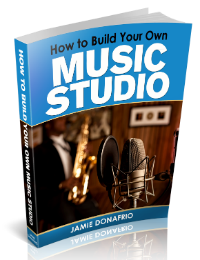Are Audio Engineers Really Musicians Too? Recording, mixing, and working with musicians in the process all require a high level of creative instinct, intuition, a willingness to take risks, and an airtight self-regulatory sense of quality control.
In other words, you have to know what your personal standards and capabilities as an audio engineer are, what the standards that you and the artists you’re working with are trying to achieve are, and how close you know you can get to achieving those established quality standards.
Granted, the level of competition in this industry is very high, and certain audio engineers will always win out because of their years of experience and knowledge, creative wit, and massive “gear porn” arsenals that will invariably put any project studio to shame.
That being said, of course, there’s always room at the top for truly talented individuals who have the drive, skills, and ingenuity to carve out their own niche in the industry, and oftentimes the best pathway to take will involve thinking less like an audio engineer and more like a musician.
Can Audio Engineers Really be Considered Musicians?
Before we go any further, it is important to understand that the two distinctions aren’t mutually exclusive, as there are plenty of audio engineers who also happen to be musicians and vice-versa (and you thought the geek behind the mixing board didn’t know jack about playing the guitar…tsk, tsk!).
The Advantages of Music Knowledge Beyond Engineering
Aside from purely technical considerations, there are plenty of creative advantages that audio engineers can bring to the table for musicians that can contribute greatly to the creative impulses and overall spontaneity of a project. More often than not, such advantages prove to be crucial to the successful outcome of any recording or mixing session.
The real question, I believe, can thus be rephrased as such:
Are you as an audio engineer as creatively spontaneous as the musicians you’re recording?
The answer to this question will invariably determine the influence you have on a project and how much you will actually be able to contribute to the vibe and lifeblood that will take a song from sounding okay to sounding jaw-droppingly amazing.
In order to be as spontaneous as your guitar-toting (or any other instrument for that matter) counterparts, you need to be intimately comfortable with the gear you own and use, the nature and science of sound and acoustics in general, and you have to have a signature method or style that really sets you apart from the rest of the competition!
What would that be, you ask?
Well, there’s no one way to really pigeonhole that particular aspect, as it could be a particular piece of gear that you use and how you use it or the sum total of your philosophy and methodology when it comes to recording, mixing, and sound design.
Either way, you have to know what it is you do that can make one band sound undeniably distinctive from any other band on the planet, and then exploit the living crap out of it as much as possible! Of course, you will have to be aware of when it’s best to turn off your creative faucet and simply perform your services as a professional, but as long as you know how to play it by ear (no pun intended), your efforts will not go unnoticed!

Learn everything you need to know about building your own music studio. You don't need to be rich to make great sound. We will show you how, for free!
- How to Choose the Right Monitors
- How to find a great Microphone
- Acoustic Treatment Tutorial
- How to Position Your Equipment